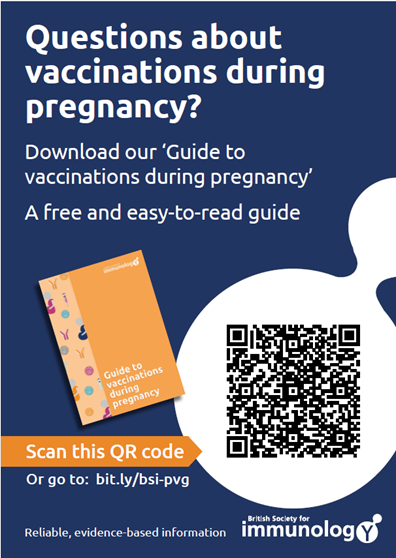Pregnancy

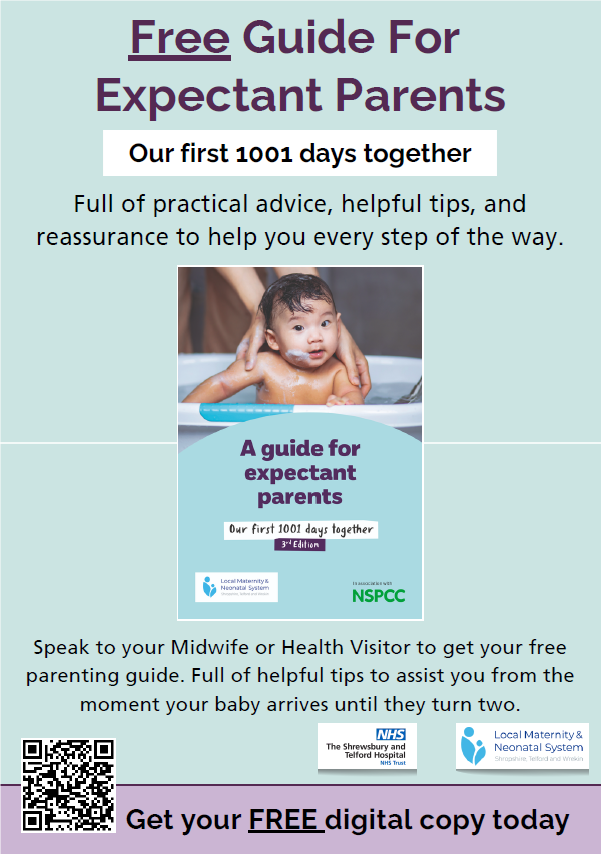
Non-urgent advice: Unassisted Birth
Please follow the link (NHS England » Your guide to birth notification after an unassisted birth) for patients that have an unassisted birth and need to know what they must do next.
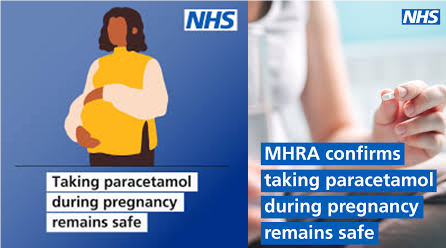
Paracetamol and pregnancy - reminder that taking paracetamol during pregnancy remains safe - GOV.UK
Don’t forget to get your Flu vaccine
It is important that you get your flu vaccine if you are pregnant or become pregnant during the flu season, 1st September 2025 to 31st March 2026.
Why is this important in pregnancy?
If you catch flu whilst you are pregnant it can put your baby at risk of being born early, being a lower weight at birth, being a smaller size and of stillbirth. Having the flu vaccine may lower these risks if you get flu. Having the flu vaccine can also protect your baby in the first few months of life when they are at their most helpless. If you catch flu whilst you are pregnant, it can be more serious, you are at a higher risk of developing problems such as bronchitis and pneumonia. These complications can lead to an increased risk of admission to intensive care for both your baby and you.
What is Flu?
It is a very infectious disease with symptoms that come on very quickly. Symptoms include fever, chills, headache, aches, pains and extreme tiredness, making you feel exhausted and too unwell to carry on as normal.
How can I protect my baby and myself?
The best way to protect your baby and yourself from flu is to have your FREE Flu vaccine. If you have children over the age of 2, they will be offered the vaccine, make sure they are vaccinated too.
Where can I get my Flu vaccine?
You can be vaccinated at your local maternity service, GP, or local pharmacy.
Frequently Asked Questions
Q. Is the vaccine safe?
A. Yes. Pregnant women can safely receive the vaccine during any part of the pregnancy, maternal antibodies pass through to the unborn baby, this protection can last for the first few months of the baby’s life.
Q. Will the vaccine give me flu?
A. No. The vaccine contains an inactive or none live form of the virus which cannot cause flu. Some people may have a sore arm and mild aches and pains which means the vaccine is working, these should only last 48 hours.
Q. Can I have the flu vaccine with my pertussis vaccine?
A. Yes, you can have the flu vaccine at any point in your pregnancy. The pertussis vaccine can be given from 16 weeks pregnant. If you have not had the flu vaccine by the time you are 16 weeks pregnant, you can have both vaccines at the same time. Do not wait for the flu vaccine if it is offered to you before you are 16 weeks.
Q. I was pregnant in March 2024, and I had the vaccine then, do I need it again?
A. Yes, Flu vaccines are updated each winter to give protection against the strains of flu that are most likely to be going around. The protection from a flu vaccine also goes down with time.
If you had the vaccine during the last flu season because you were pregnant (with the same or different pregnancy), or because you're in a vulnerable group, you will need the vaccine again.
Q. I think I have already had flu. Do I still need a vaccination?
A. Yes. There is more than one type of flu virus, the vaccine will help to protect you against other flu viruses.
Q. Can flu be treated with antibiotics?
A. No. Flu is a virus and the only way to be protected is with a flu vaccine.
Q. Where can I get more information about the flu vaccine in pregnancy?
A. Through your GP, midwife or nurse vaccinator at the trust you are booked to have your baby. There is also lots of information you can access on the NHS website The flu jab in pregnancy - NHS (www.nhs.uk)

New maternity services finder
A new maternity services finder is now available on NHS.UK to help people self-refer directly into maternity services to start NHS pregnancy care.
Faster First NHS Midwife Appointments
|
Hundreds of thousands of newly pregnant women across England can now self-refer online to get their “all-important” first midwife appointments quicker, ensuring the best and most personalised care for their baby. |
NHS maternity exemption certificate
Are you missing out on free NHS prescriptions?
If you’re pregnant or you’ve had a baby in the last 12 months, you need a
maternity exemption certificate to claim free NHS prescriptions.
You can also use this certificate whilst pregnant to prove your entitlement to
free NHS dental treatment.
You can continue to use your certificate for free NHS prescriptions if you’ve
had a miscarriage or stillbirth.
Speak with your midwife, health visitor or doctor to apply.
You will get a digital certificate via email or a paper certificate in the post.
You should not claim free NHS prescriptions until you receive your maternity
exemption certificate.
If you claim free NHS prescriptions without holding a valid maternity
exemption certificate, you could have to pay a penalty charge of up to £100.
For more information about the NHS maternity exemption certificate visit:
www.nhsbsa.nhs.uk/digitalmatex
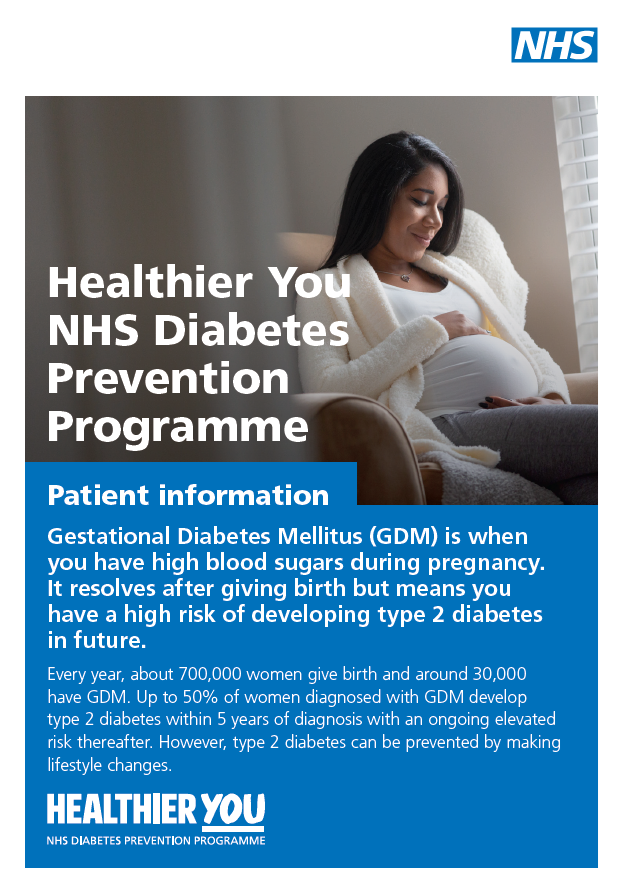
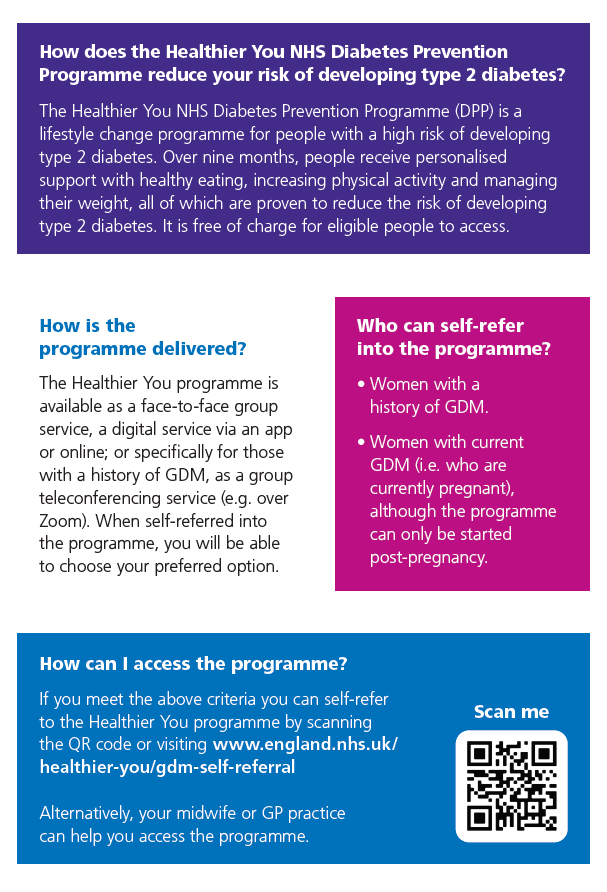
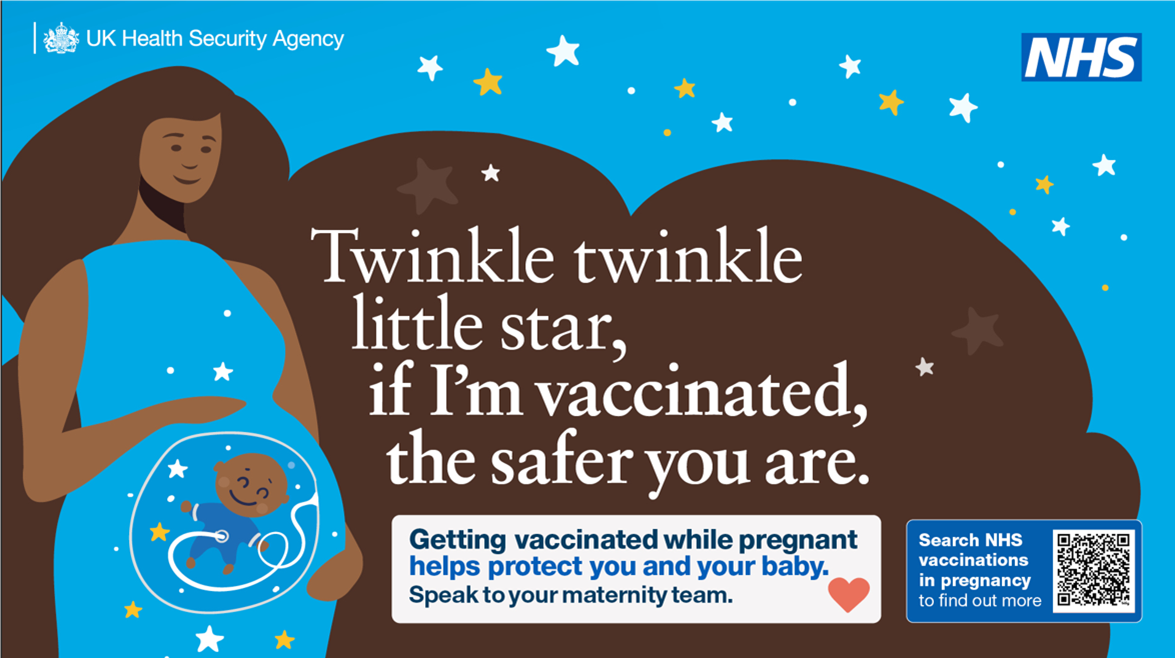
Your Local Maternity & Neonatal System (LMNS) team in Shropshire, Telford and Wrekin, a partnership of organisations, women and their families working together, has launched a new website full of information to support people through pregnancy, labour and beyond.
The LMNS team, which sits within NHS Shropshire, Telford and Wrekin, ensures everyone is working in collaboration to improve maternity and neonatal services and support people who are on or beginning their pregnancy and newborn journey.
The LMNS includes NHS Shropshire, Telford and Wrekin, local midwives, obstetricians, neonatal staff, hospital managers and commissioners, public health agencies, educators, perinatal mental health providers, GPs and the Maternity & Neonatal Voices Partnership (MNVP).
To find out more and to access the new website, visit www.stw-lmns.com.
Finding Out You're Pregnant
You should contact your GP surgery or local midwife service as soon as you find out you're pgrenant (before 8 weeks into the pregnancy). It is important to see a midwife as early as possible to get the antenatal (pregnancy) care and information you need to have a healthy pregnancy.
Your pregnancy can be treated confidentially, even if you're under 16. A GP or midwife can tell you about your choices for antenatal care in your local area. Being pregnant may affect the treatment of any current illness or conditions you have or later develop.
Knowing You are Pregnant
When you find out you're pregnant, you may feel happy and excited, or shocked, confused and upset. Everybody is different. Some of this may be caused by changes in your hormone levels, which can make you feel more emotional.
If you're feeling anxious or worried it will help to talk to someone. Read about mental health in pregnancy.
However you're feeling, contact an NHS professional so you can start getting antenatal care.
Telling People That You're Pregnant
You may want to tell your family and friends that you're pregnant immediately or wait a while until you know how you feel. Or you may want to wait until you've had your first ultrasound scan, when you're around 12 weeks pregnant before you tell people. Some of your family and friends may have mixed feelings or react in unexpected ways to your news. You may wish to discuss this with a midwife.

Being Healthy During Your Pregnancy
A healthy diet is an important part of a healthy lifestyleat any timebut is especially vital if your'e pregnant or planning a pregnancy. Eating healthily during your pregnancy will help your baby to develop and grow. You do not need to go on a special diet, but it's important to eat a variety of different foods every day to get the right balance of nutrients that you and your baby need.
Read more about vitamins and supplements in pregnancy.
There are also certain foods that should be avoided in pregnancy.
Eating healthily often means changing the amounts of different foods you eat, so that your diet is varied, rather than cutting out all your favourites. You can use the Eatwell Guide to get the balance of your diet right. It shows you how much of what you eat should come from each food group to achieve a healthy, balanced diet. You do not need to achieve this balance with every meal, but try to get the balance right over a week.
Please click on the following links to find out more information about how to maintain healthy diet and getting the good nutrition you and your baby needs.
Eating well in pregnancy | Tommy's (tommys.org)
Have a healthy diet in pregnancy - NHS (www.nhs.uk)
Exercise in Pregnancy
The more active and fit you are during pregnancy, the easier it will be for you to adapt to your changing shape and weight gain. It will also help you to cope with labour. Keep up your normal daily physical activity or exercise for as long as you feel comfortable, exercise is not dangerous for your baby, there is evidence that active women are less likely to experience problems in later pregnancy and labour.
You may need to slow down as your pregnancy progresses or if your maternity team advises you to. If in doubt, consult your maternity team. As a general rule, you should be able to hold a conversation as you exercise when pregnant. If you become breathless as you talk, then you're probably exercising too strenuously.
Please click on the following links to find out more about how to stay active during your pregnancy and how to exercise safely and what to avoid doing.

Maximising uptake of the whooping cough vaccination in pregnancy - On behalf of Public Health Vaccinations & Screening, NHS England - Midlands (West)
Whooping cough (pertussis) cases are rising and babies who are too young to start their vaccinations are at greatest risk.
Young babies with whooping cough are often very unwell and many likely to need hospital treatment as it can lead to pneumonia and permanent brain damage.
T o help protect people who are pregnant and young babies against serious illness, we are asking maternity and primary care services to continue to ensure the offer of vaccination against whooping cough is encouraged at every opportunity.
Vaccination in pregnant women is 97% effective at preventing death in young infants from whooping cough.

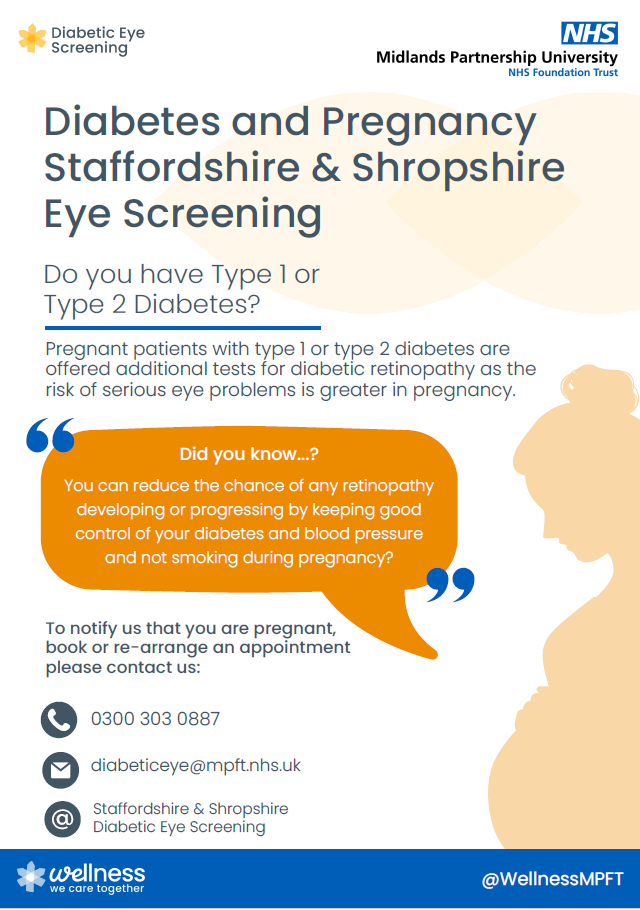
Useful Links
For more information please use the following links -
Saving babies' lives - Charity for Babies | Tommy's (tommys.org)
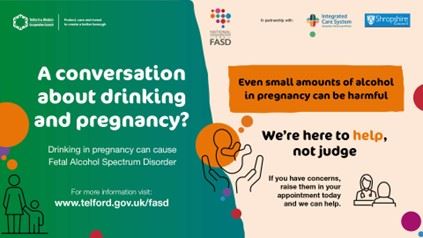
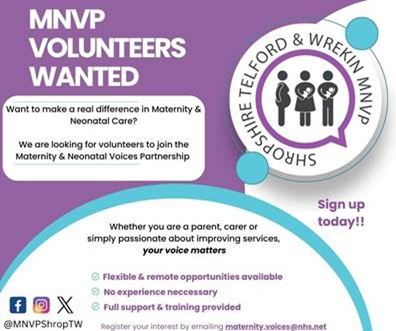
Maternity and Neonatal Voices Partnership Volunteer Recruitment
🌼 Help make maternity care better for everyone.🌼
Have you had a baby? Supported someone who has? We’d love to hear from you.
We’re looking for volunteers to join Shropshire, Telford and Wrekin Maternity and Neonatal Voices Partnership (MNVP). You don’t need any special skills, just lived experience and a kind heart.
Maternity and Neonatal Voices Partnership Volunteer Recruitment
🌼 Help make maternity care better for everyone.🌼
Have you had a baby? Supported someone who has? We’d love to hear from you.
We’re looking for volunteers to join Shropshire, Telford and Wrekin Maternity and Neonatal Voices Partnership (MNVP). You don’t need any special skills, just lived experience and a kind heart.
Page created: 09 November 2023
